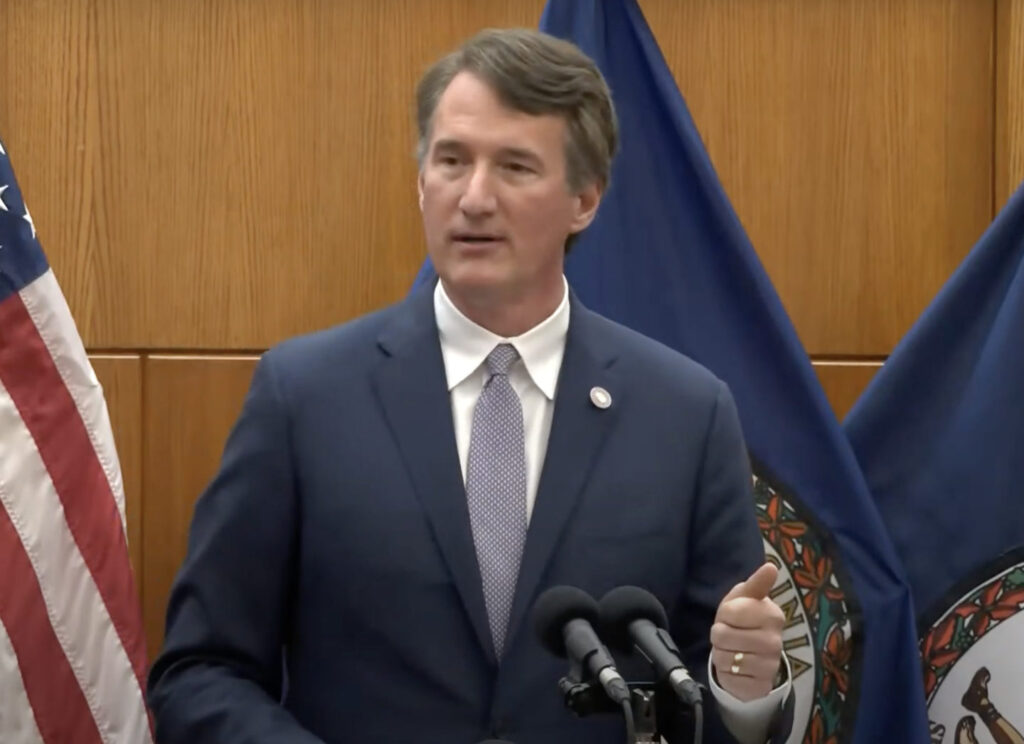Youngkin: ‘We must change direction’ in light of K-12 education report revealing major decline
A new report reveals significant performance declines and achievement gaps in Virginia schools.
“Today is a moment in time for all of us to recognize we must change direction,” Gov. Glenn…

A new report reveals significant performance declines and achievement gaps in Virginia schools.
“Today is a moment in time for all of us to recognize we must change direction,” Gov. Glenn Youngkin said about the report by the Virginia Department of Education.
“This report should create a sense of urgency and importance for all of us,” Virginia Superintendent of Public Instruction Jillian Balow writes in a forward to the report.
The assessment is a response to the governor’s Jan. 15 executive order in which he called for a report on education in the state.
Youngkin’s aim is to “close the ‘achievement gap’ in K-12 education, with recommendations for additional executive and legislative actions.”
Achievement gap references in the report refer not only to performance disparities between specific demographics of students, but an overall decline in student performance since 2017.
Report findings
The report lists three main areas of poor performance in the state’s K-12 education: lower expectations, wider achievement gaps and lack of transparency. In short, lowered expectations led to performance gaps that the state failed to communicate publicly.
In 2017, Virginia changed its school accreditation requirements, “de-emphasizing” grade-level proficiency in math and reading – a decision that ignored national proficiency standards. That meant it took fewer correct answers to demonstrate proficiency on state tests compared with national tests, such as the National Assessment of Educational Progress (NAEP).
Based on this departure from national standards, the report states, the Virginia school accreditation system “does not provide a clear, consistent, and understandable picture of how well schools are serving students.”
Lowered expectations in Virginia also widened achievement gaps found between state proficiency standards in math and reading and those of the NAEP.
For example, the report found that 75% of fourth-graders and 76% of eighth-graders scored proficient on 2019 state assessments, but only 38% of fourth-graders and 33% of eighth-graders were proficient on the NAEP.
The difference between state scores and national averages is referred to as the ‘honesty gap.” Virginia averaged 38.5% on its honesty gap in 2019, which is higher than the national average.
Most states immediately addressed their gaps by raising test standards, but Virignia failed to address and narrow their gap, according to the report.
A lack of transparency regarding the declining education statistics also was flagged in the report, which concludes that, “Negative data trends on key student and school success indicators” were not being communicated to the public, effectively hiding achievement gaps and learning loss.
Gov. Youngkin’s response
“The significant lowering of expectations, the lack of transparency with data, the weak accountability for these results, that all ends today,” Youngkin declared in a press conference responding to the report.
The governor also announced solutions to the problems raised by the report, including personalized learning plans for every struggling student, to be implemented by the Virginia Department of Education, as well as the establishment of 20 lab schools to promote innovation in education across the state.
Youngkin also pointed to policies that made the achievement gaps worse, especially keeping students from in-person classes during the pandemic, saying it had a “detrimental effect on our children.” He added that five-day school weeks were necessary for shortening the achievement gaps.
Education became the defining issue for Youngkin’s campaign in 2021, in which he promised to respect parental rights. He asserted that Virginia would be a “guiding light to the nation” on parental involvement in education.



